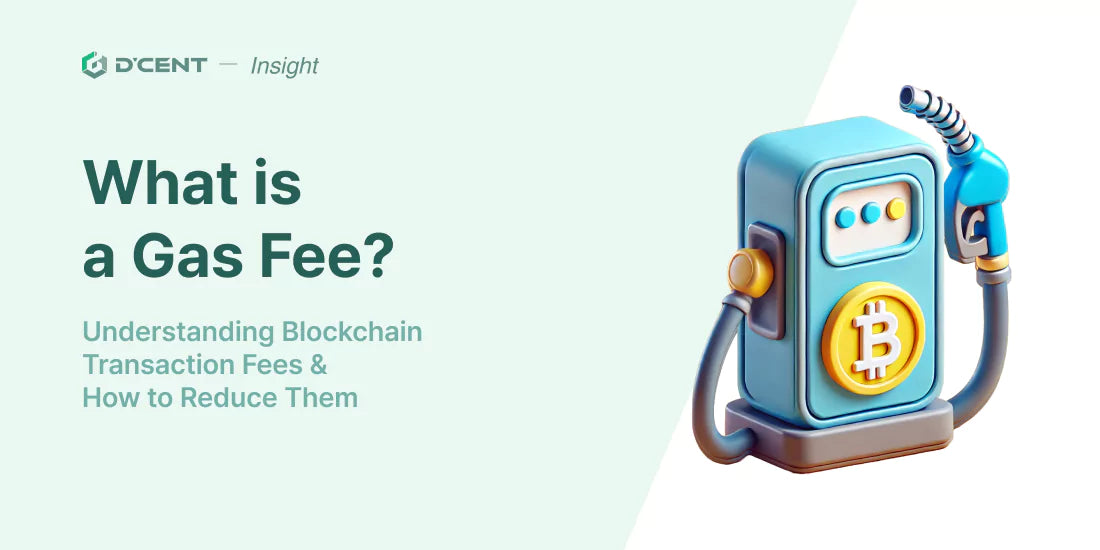Did you find this article helpful?
Sharing it takes less than 20 seconds, but we spent over 20 hours crafting it to bring you valuable insights. Help others by spreading the knowledge! 🚀

In a previous blog post, I explained that one of the fundamental philosophies of blockchain is "decentralization." Instead of having a centralized organization or institution operate the network ecosystem, many participants voluntarily manage the ecosystem, which requires a reward system to compensate them for the capital and effort they invest. In this session, we will explore the reward system of blockchain networks known as the GAS fee.
GAS fees are an important concept used not only in smart contract-based blockchains like Ethereum but also in Bitcoin, often referred to as digital gold. These fees represent the cost of processing computational tasks within the network and serve as a unit for measuring the resources required to execute transactions and smart contracts. Since blockchain operates as a decentralized network, the tasks of verifying transactions and generating blocks are carried out by miners or validators, who are rewarded with GAS fees for their work.
GAS fees represent the cost of computational work on the network and serve as a unit to evaluate the resources required to execute transactions or smart contracts. For example, a simple token transfer requires a relatively small amount of GAS, whereas the execution of a complex smart contract consumes more GAS due to the greater computational work needed. This system is designed to allow the network to allocate resources efficiently. Based on this, users can opt to pay higher fees to prioritize their transactions over others.
GAS fees are determined by two main factors: GAS Price and GAS Limit.
GAS fees fluctuate based on network congestion, transaction complexity, and the number of transactions processed per block. If network usage spikes or a large-scale DApp execution occurs, GAS fees can surge. Users may need to pay higher fees to get their transactions processed first. The complexity of a transaction also affects the required GAS limit, leading to different fees depending on the transaction's complexity.
Ethereum's gas fees are determined by supply and demand on the network. When the network experiences high traffic or complex smart contracts are executed, the fees increase significantly. Since the capacity of the Ethereum network is limited, more users submitting transactions at the same time lead to gas fee spikes. For example, events like large-scale NFT minting or DApp launches can cause sudden surges in gas fees. Additionally, users who want their transactions to be processed faster may opt to pay higher gas fees, further contributing to fee increases during congested periods.
If you'd like to check Ethereum's real-time gas fees, you can use the following platforms:
To reduce GAS fees, users can execute transactions when the network is less congested or set a lower fee. Some DApps offer GAS optimization features that improve computational efficiency, thereby lowering fees. Additionally, using Layer 2 solutions such as Polygon or Optimism can help reduce high fees on the Ethereum mainnet. These solutions alleviate the computational burden on the main chain, enabling cheaper and faster transactions.
Finally, according to data from Etherscan and Dune Analytics, the total amount of GAS fees used on the Ethereum network in 2023 exceeded $1 billion USD. GAS fees are crucial for maintaining the operation, security, and efficiency of the blockchain network. Understanding GAS fees is essential for using blockchain effectively, allowing users to manage transactions and assets more efficiently.
D'CENT provides efficient and secure asset management solutions for blockchain users. If you would like to know more about how to reduce GAS fees or how to handle blockchain transactions, feel free to contact D'CENT Customer Support.
Did you find this article helpful?
Sharing it takes less than 20 seconds, but we spent over 20 hours crafting it to bring you valuable insights. Help others by spreading the knowledge! 🚀